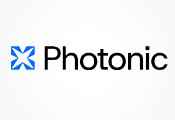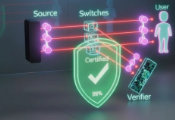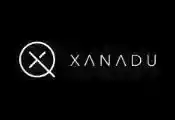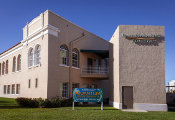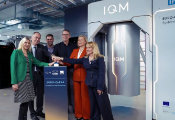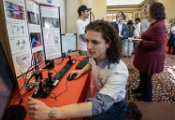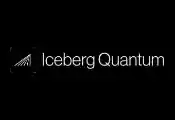Dutch Quantum Ecosystem Upgrades Integrated Quantum Computer for the Cloud
QuTech has united with four quantum companies in the HectoQubit/2 consortium to build full superconducting quantum computing systems to be made publicly available through QuTech’s Quantum Inspire cloud platform. The systems will mean significant upgrades to the Starmon-5 system that has been available since 2020.
HectoQubit/2 is funded by Quantum Delta NL under its Cat-1 program, and is a critical first step on the path towards the development of a 100-qubit quantum computer in Delft as planned within the European Flagship consortium OpenSuperQPlus, where TU Delft is one of the three demonstrator sites.
The project is being coordinated by leading quantum technology research institute QuTech, a collaboration between Delft University of Technology (TU Delft) and the Netherlands Organisation for Applied Scientific Research (TNO). Each of the four companies – QuantWare, Delft Circuits, Qblox, and Orange Quantum Systems -, who are all located close to the Delft campus, will deliver a key layer of the full quantum computer ‘stack’.
Each entity has longstanding ties with TU Delft and TNO’s quantum program and a shared mission to advance quantum computing to practical and reliable usability. This is underscored by HectoQubit’s scientific coordinator, Prof. Leonardo DiCarlo at TU Delft: “Within the European flagship, we are the ones who are embracing the 100-qubit target. In fact, we’re the only ones. We’ve really stuck our necks out.”
The contributions from each of the participating start-ups will need to integrate seamlessly into a full-stack quantum computing solution: the control electronics supplied by Qblox, the quantum chips manufactured by QuantWare, automated calibration software by Orange Quantum Systems, and cryogenic cabling from Delft Circuits.
Niels Bultink, Qblox CEO and co-founder expands: “For us it has always been clear: quantum computing should be seen as a value chain where each company or university picks one subproblem and focuses on being the best at that part. The HectoQubit/2 project uniquely proves this approach and that by combining the different parts of the stack we can indeed together build cutting-edge full-stack quantum computers.”
Amber van Hauwermeiren, one of the founders at OrangeQS, a spin-off from the Quantum Inspire project, explains their part in this value chain: “We will support the effort with a framework to automate and maintain calibration, as well as device performance monitoring. This contributes to further increasing the capabilities and performance of our automated testing software, an important component of our high-throughput test equipment which we deliver to organisations that work on 100-qubit scale quantum chips.”
Daan Kuitenbrouwer, CCO and Founder of Delft Circuits shares their zest for participating in HQ/2 project: “We are very excited to be part of this great team building a quantum computer in Delft. As an I/O company, we are typically involved in the design of I/O for quantum systems. This project however brings us in depth understanding of the entire process of building a quantum computer. This learning is essential to improve our I/O- solutions and roadmap.”
In HQ/2, TU Delft, specifically the DiCarlo lab, is undertaking the critical role of integrating the contributions from each participant, while TNO is responsible for the web interface, which the public will access through the Quantum Inspire platform. When QuTech rolled out Quantum Inspire in 2020, it was Europe’s first publicly available and free online quantum computing system, offering people the opportunity to test their quantum algorithms on transmon qubits, a separate spin-based quantum processor, and emulators.
“This project is a fantastic example of partners in our ecosystem building larger and larger quantum computers more quickly using our QPUs and Crescendo-S amplifiers”, says Matthijs Rijlaarsdam, CEO of QuantWare. “It’s great to be in a consortium with these excellent partners that have been with us from the start. HectoQubit/2 marks a further expansion of systems powered by QuantWare that are available over the cloud for end-users – further accelerating the development of quantum computing software.“
The HQ/2 consortium’s efforts align with the European Quantum Flagship program, a one billion-euro initiative focused on establishing Europe as one of the global quantum leaders. While the European program supports collaborative efforts across the continent, HectoQubit/2’s distinctive value-chain approach to quantum development might well set the stage as a model for others to emulate.
Richard Versluis, principal systems engineer at TNO and lead of the Cat-1 program says: “With support of the National Growth Fund, we’re bringing quantum technology to a higher level and improving both the knowledge position and technology position of the Netherlands. We do this by building collaborations between companies, RTO’s and universities. The HectoQubit/2 project exemplifies the power of this mechanism.”

